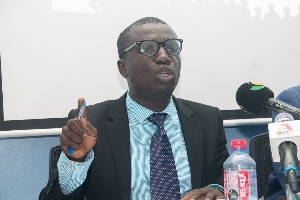A study conducted by the World Economic Forum has recommended government to review the minimum capital requirement to rake in more Foreign Direct Investment (FDI) to the country.
Presenting the study’s findings at a validation workshop in Accra, the Lead Consultant for the study, Mr. Appiah Kusi Adomako, said setting a minimum threshold capital requirement across the board would prevent investments into sectors which do not require substantial investment. He cited, for example, that a foreign investor coming to invest in the information communication technology (ICT) sector does not need to have the same capital requirement as someone coming to invest in the real estate or mining sector.
Mr. Adomako stated: “All enterprises in the country with foreign participation are required to register with the Ghana Investment Promotion Centre (GIPC). Under the new GIPC Act, 2013 (Act 865); the minimum capital required for retail business has also moved from US$300,000 to US$1million, while foreign investors who participate in joint venture enterprises have to show a minimum capital of US$200,000 with wholly-owned foreign enterprises showing a minimum capital of US$500,000”.
He said as part of efforts to attract foreign investors, most countries in the West Africa sub-region have removed the minimum capital requirements for foreign investors. With phase-two of the African Continental Free Trade Agreement (AfCFTA) on investment, intellectual property and competition policy to start very soon, Ghana will need to align its investment laws with those of the continent.
Mr. Adomako recommended that in order to facilitate investment and the ease of doing business, government should deploy an online single window for company registration, tax registrations, SSNIT, business operating permits and investment certificates.
In his remarks, Mr. Matthew Stephenson – Policy and Community Lead on International Trade and Investment at the World Economic Forum, recommended the establishment of investment aftercare services to help facilitate investment.
Mr. Stephenson, added that the GIPC Act provides a clear explanation and variation between investment promotion and investment facilitation, hence presenting Ghana with a strong legal and institutional framework for investment facilitation.
The Director of Investor Service at GIPC, Mr. Edward Ashong-Lartey, stated that the Centre has started with a multi-stakeholder consultation over the past few years to receive the inputs, suggestions and recommendations on what changes need to be made in modernising the GIPC Act.
“If we are to continue being the best place to do business in West Africa and Africa at large, then there is a need to review all Investment laws to better-position Ghana as the investment hub of Africa,” he added.
The Secretary-General of the International Chamber of Commerce, Mr. Emmanuel Doni Kwame, lauded the team for putting together a brilliant report. He stressed that the recommendations highlighted should be implemented to improve the investment climate.
The research was undertaken by CUTS International on behalf of the World Economic Forum and the Ghana Investment Promotions Centre (GIPC), to understand investment facilitation measures for sustainable development.
Business News of Sunday, 22 September 2019
Source: thebftonline.com













